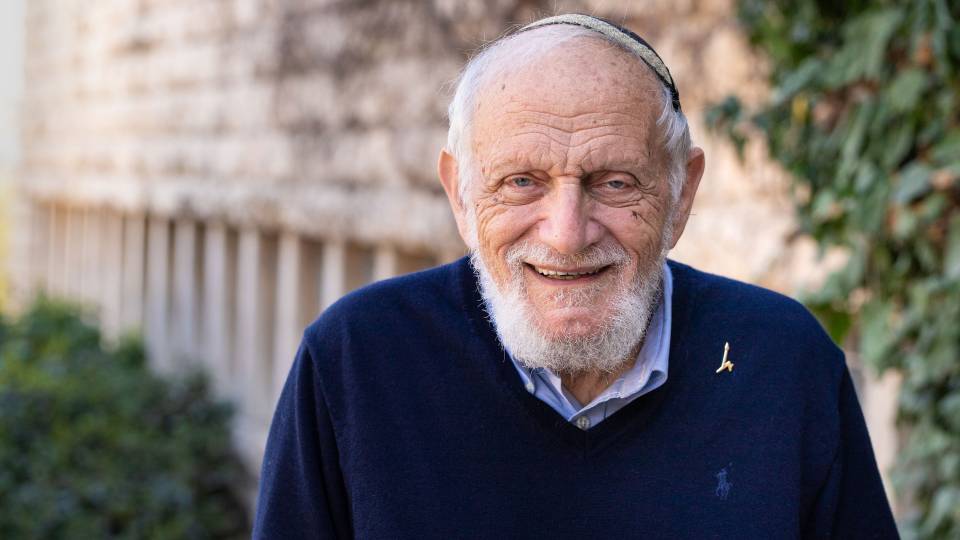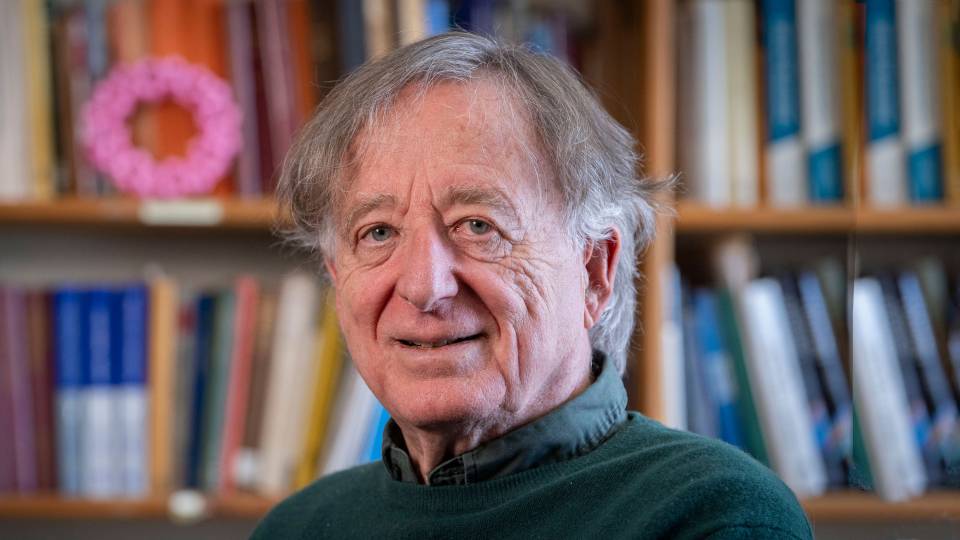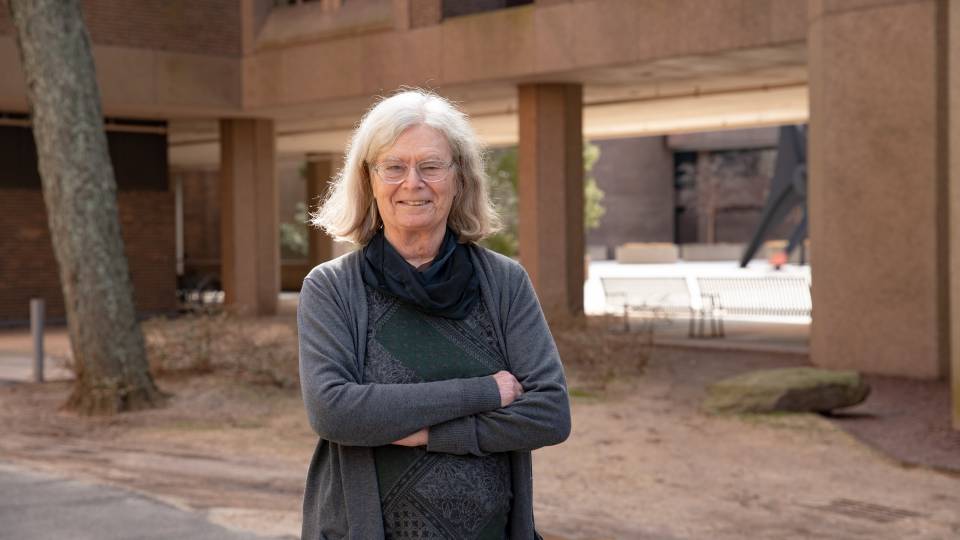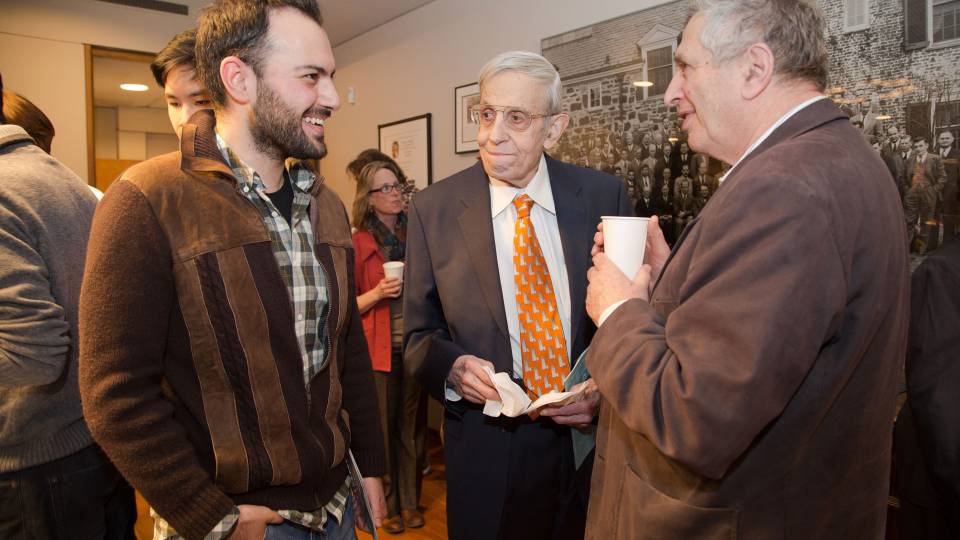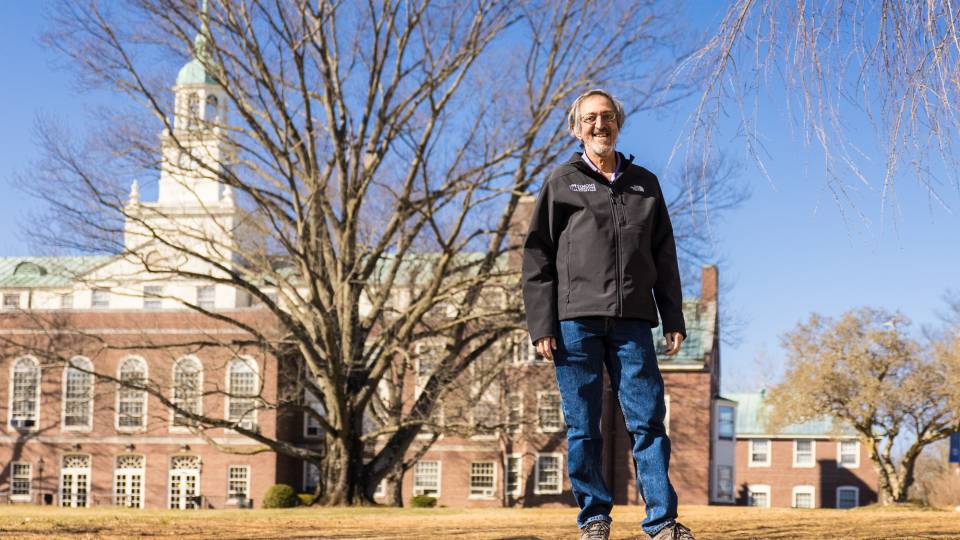The Norwegian Academy of Science and Letters will award the Abel Prize for 2018(Link is external) to Robert Langlands for work he did while an associate professor at Princeton University.
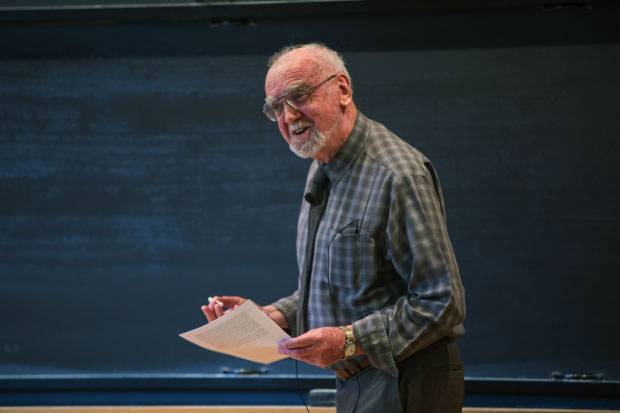
The Norwegian Academy of Science and Letters will award the Abel Prize for 2018 to Robert Langlands for work he did while an associate professor at Princeton University.
Langlands, now an emeritus professor at the Institute for Advanced Study in the town of Princeton, is honored “for his visionary program connecting representation theory to number theory,” a program he first described during the midwinter break in 1966-67, when he was a 30-year-old associate professor at Princeton.
Langlands had come to Princeton in 1960 as an instructor, and he soon encountered Atle Selberg, André Weil and Harish-Chandra at the nearby Institute for Advanced Study. During the holiday break of 1966, Langlands bumped into Weil in a corridor and began to explain some of his new ideas. Weil suggested he write up his thoughts in a letter.
“I have not had a chance to think over these questions seriously and I would not ask them except as the continuation of a casual conversation,” Langlands wrote. “If you are willing to read it as pure speculation I would appreciate that. If not — I am sure you have a waste basket handy.”
Fortunately, Weil recognized that this was neither mere speculation nor trash. Langlands’ letter proposed a completely new way of thinking about mathematics, suggesting deep links between number theory and harmonic analysis, two areas that had previously been considered unrelated.
Weil quickly had the 17-page letter(Link downloads document) typed up so he could share it with other mathematicians. The rich and radical insights proposed in the letter attracted more and more mathematicians over the next few years, eventually becoming known as the Langlands program.
Over the last 50 years, the Langlands program has enlisted hundreds of the world’s best mathematicians. No other project in modern mathematics has as wide a scope, has produced so many deep results, and has so many people working on it. The Langlands program is now frequently described as a grand unified theory of mathematics.
“He’s a visionary,” said Sun-Yung Alice Chang(Link is external), the Eugene Higgins Professor of Mathematics(Link is external), who served on the five-member prize committee. The panel reviewed more than 100 candidates before selecting Langlands, Chang told The New York Times.
Langlands is married to Charlotte Lorraine Chevarie, with whom he has four children and several grandchildren. They married when he was a 19-year-old undergraduate at the University of British Columbia. He completed his bachelor’s degree in mathematics in 1957, at age 21, and finished his master’s degree a year later. He moved to Yale University for his doctorate, completing his Ph.D. thesis, “Semi-groups and representations of Lie groups,” in his first year there. In 1960, he came to Princeton. Now, at the age of 81, he continues his work at the Institute for Advanced Study, where he occupies the office once used by Albert Einstein.
Langlands will receive the prize in Oslo on May 22 from His Majesty King Harald V. The Abel Prize carries a cash award of 6 million NOK, or about $775,000. Langlands is the fourth recent Abel Prize recipient associated with Princeton. The 2016 prize went to Andrew Wiles, the James S. McDonnell Distinguished University Professor of Mathematics, Emeritus; late University mathematician John Nash shared the 2015 prize(Link is external) with Louis Nirenberg of New York University; and the 2014 prize went to Professor of Mathematics Yakov Sinai(Link is external).
